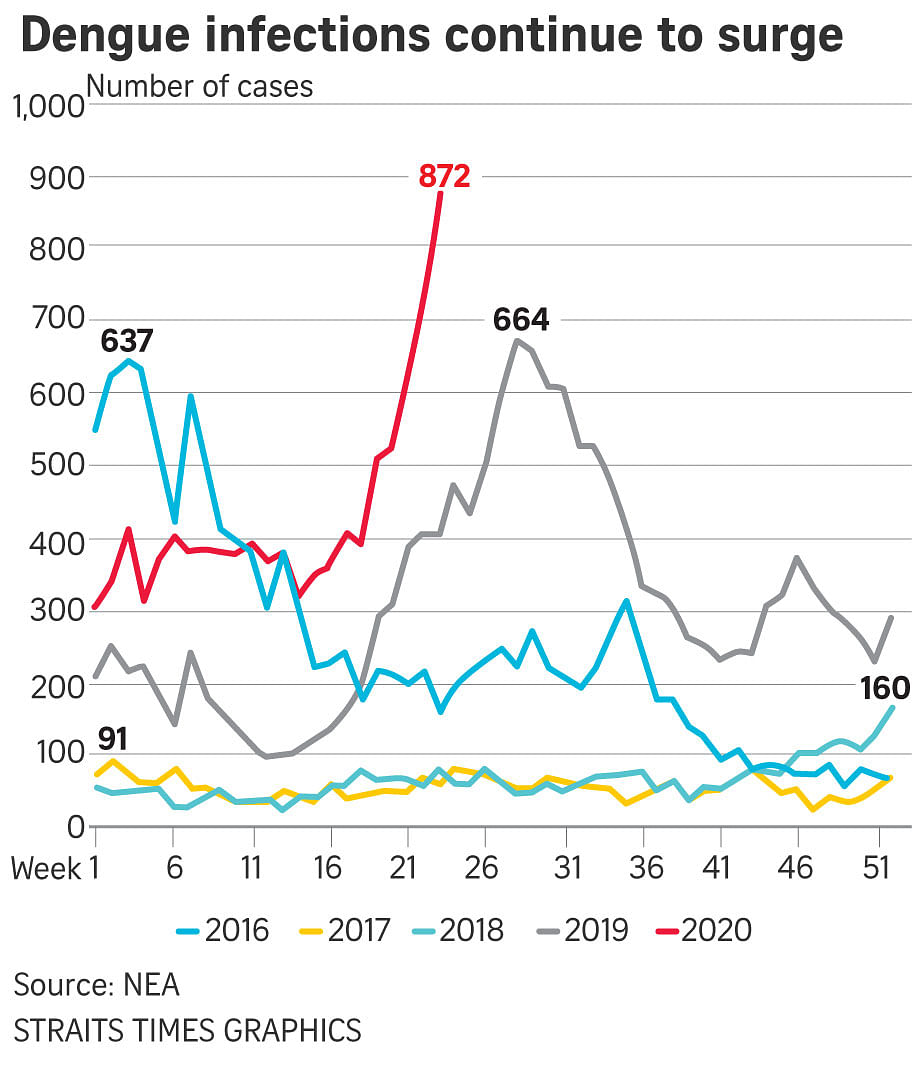SINGAPORE - Dengue infections have surged past the 10,000 mark this week. The 872 cases last week are more than double the 390 just five weeks ago.
The National Environment Agency (NEA) said on its website: "This is the highest number of cases in the first five months of the year since 2013, the largest outbreak year recorded in Singapore's recent history."
In 2013, 22,170 people were infected and eight died. So far this year, 12 people aged between 56 and 80 have died of dengue.
The highest number of dengue deaths was in 2005, when 25 people lost their lives to the virus. Last year, 20 people died.
The NEA warned that the hot and wet conditions suitable for the growth of the Aedes mosquito population are likely to last till October.
Dengue is spread through mosquito bites, and not from person to person. But people with dengue are urged to use mosquito repellents to prevent themselves from being bitten by mosquitoes, which would then pass the virus to other people.
There are now 190 active dengue clusters, with the biggest in the Woodleigh area along Upper Serangoon Road, with 200 people infected, 33 within the past fortnight. It is one of five large clusters with more than 100 people infected.
Associate Professor Alex Cook, an epidemiologist at the National University of Singapore's Saw Swee Hock School of Public Health, said experts had looked at whether the circuit breaker measures for the Covid-19 pandemic in April and May had caused the jump in infections, with more people staying at home, but found that this was not the case.
The increase follows the normal seasonal patterns. But this year, because of the change in the dominant strain of the dengue virus, fewer people would be immune.
DenV-3 was dominant in the first quarter of the year, but now shares dominance with DenV-2.
People who have been infected before are protected against only that strain of the virus, and not against the other three dengue strains.
Prof Cook added: "However, for those of us who are spending more time at home due to the ongoing restrictions due to Covid-19, it would be wise to take extra precautions against dengue, especially removing stagnant water from around the household and common corridor.
"We really want to avoid having the hospitals stretched by two outbreaks at the same time."
Roughly one in five people diagnosed with dengue is sick enough to require hospital care, usually for several days.
Dengue causes nausea and vomiting, aches and pain in the muscles, joints and bones, and behind the eyes, and a red rash. It is important for those infected to stay hydrated, so drinking plenty of water, or isotonic drinks, is recommended.
Some people might suffer from the more serious dengue haemorrhagic fever that causes bleeding from the nose or gums, as well as internal bleeding that shows up as blood in the stools or vomit.



